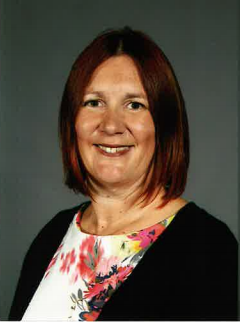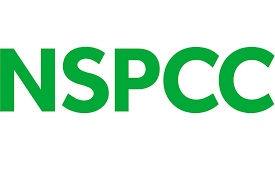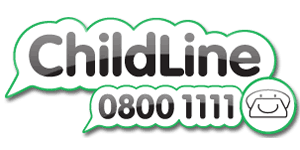
Safeguarding
If a child is in imminent danger then please dial 999 for the Police.
The team at Beaver Green Primary School are committed to safeguarding and promoting the welfare, both physical and emotional, of every pupil. We aim to provide a caring, positive, safe and stimulating environment which promotes the social, physical and moral development of each individual child and strive to make sure that every pupil in the school feels safe, secure, well cared for, and able to reach their full potential.
Designated Safeguarding Leads
 |
Ms T Oakley - Headteacher Lead DSL |
 |
DHT and DSL |
 |
Mr Randall - Welfare Manager and DSL |
|
|
Miss Lucas Safeguarding Support Worker and DSL |
|
Mrs Hollingsbee FLO and DSL |
If you have any concerns at all about the safety or welfare of a child please make immediate contact to the school directly on 01233 621989 and clearly state that your call relates to a potential safeguarding issue. If your concerns are outside of school hours or during the school holidays, please contact the police or Kent Children Services on 0300 041 4141.
Useful Links:
 |
Kent Safeguarding Children - a multi-agency partnership
|
|
CEOP is set up to keep children safe from sexual abuse and grooming online. Online abuse can be reported here CEOP are unable to respond to reports about bullying, fake accounts or account hacking. |
Childline is yours – a free, private and confidential service where you can talk about anything. We’re here for you online, on the phone, anytime. Click the image to take you to their website.
 The NSPCC is a charity that has been supporting children for over 130 years. Click on the logo or call 0808 800 5000 if you need any support for yourself or someone else.
The NSPCC is a charity that has been supporting children for over 130 years. Click on the logo or call 0808 800 5000 if you need any support for yourself or someone else.
Safeguarding Your Child Online
Talking to your child about online safety
It is recommended that you speak regularly to your child about what they’re doing online or who they might be speaking to. Starting this conversation can be difficult, so it is important to remember that for young people online life often feels like real life. Sometimes, it can be easier for children to talk to their parents/carers about awkward subjects when they are doing something else as well, such as walking together, eating together, sharing a car journey, or doing something practical together such as gardening.
Talking about it could make a young person feel uncomfortable, worried, annoyed or confused as it may feel you are intruding on their privacy. But talking regularly, like you would about their day at school, will help your child feel relaxed and mean they’re more likely to come and speak to you if they are worried. When starting a conversation it may help to:
-
Reassure them that you’re interested in their life, online and offline. Recognise how important and valuable the Internet is and how you both use it.
-
Ask your child to show you what they enjoy doing online and which apps they use, so you can understand them.
-
Recognise that young people tend to turn to social media when feeling lonely or have poor mental health. This puts them at higher risk of being groomed online.
-
Be positive and open about how you feel. Phrases such as “I think this site is really good” or “I’m a little worried about things I have seen here” might be helpful.
-
Let them know they can come to you and ask if they are worried or confused about anything.
-
Ask them about their online friends, how they met and how your child knows who they say they are.
-
If you don’t think apps or sites are suitable, listen to your child’s reasons for wanting to use them and talk about this together.
-
Talk about how pictures, videos or comments that are posted online can be very difficult to remove and rarely remain private.
-
Discuss the pressures for young people to send inappropriate or indecent images to each including nudes or semi-nudes. How might this behaviour affect their relationship? Do they know what they would do?
-
Discuss how images can be copied, saved and shared without their knowledge and if they are under 18, they are also breaking the law by making and sending a nude or semi-nude picture of themselves or others.
-
Improve your own knowledge by finding out about some of the issues your child could experience. https://www.betterinternetforkids.eu/en-GB/practice/topics
Setting some house rules to keep the whole family safe online
It may be beneficial to discuss and agree as a family how the Internet will be used in your house.
Let your child tell you what they think is acceptable and isn’t for them to do online, such as being nasty to people, keeping personal information private and speaking to an adult when they are worried. Then add your own rules like how long they are allowed to spend online and not using cameras in bedrooms.
-
Make sure that your child understands that their actions and behaviours online can have offline consequences.
-
Agree on sanctions for breaking the rules.
-
You might find it helpful to write these ‘ground rules’ down as a visual reminder.
Remember these are whole family rules, so consider your own use of the Internet and lead by example. Consider how much information you are sharing on your social networks about your child and who can see it.
Keeping your child safe: your knowledge and control measures
Make the most of the parental controls on your child’s internet-enabled devices and games consoles.
-
Make sure you apply parental controls to all Internet devices in your household. They can restrict access to inappropriate content and can help you manage how much time your child spends online.
-
Make sure your child understands that parental controls are in place to protect them, not restrict them; some children will actively work around parental controls if they feel constrained without knowing why.
-
Find out about the apps your child is using. This site covers most the popular apps young people are currently using: https://www.betterinternetforkids.eu/en-GB/apps-guide
-
Set up filters on Internet search engines to limit the likelihood of your children accidentally coming across inappropriate content when searching online.
-
Be aware that Internet history can be hidden and deleted, so make sure you talk to your children.
-
Remember that filters will never be 100% effective so you cannot rely on them alone to protect your children. It is important that your children understand that they should tell you straight away if they come across something inappropriate or upsetting online.
It is important to monitor your child’s behaviour, mood and presentation as any changes could be an indication that something is upsetting your child online. Children who are groomed, radicalised or exploited online will often be pressured to withdraw from family and friends.
Links to help you manage online safety in your home
 https://www.saferinternet.org.uk/
https://www.saferinternet.org.uk/
 https://www.thinkuknow.co.uk/parents/
https://www.thinkuknow.co.uk/parents/


